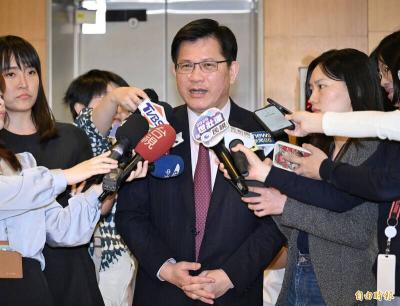Vice President Vincent Siew (蕭萬長) said on Friday that Taiwan needed to sign a trade pact with China, but added that the government would not open its doors too wide to China.
Making his case in Taiwanese at a forum on a proposed economic cooperation framework agreement (ECFA) with China at National Cheng Kung University in Tainan, Siew said that when the global economy was in crisis, Taiwan felt its impact. Given that these crises occur about every 10 years, Taiwan must find ways to cope with these challenges, he said.
In dealing with the crisis, Taiwan has many challenges to overcome: its national competitiveness must be enhanced, it must actively innovate domestically, and it needs markets abroad.
Furthermore, as Asian economies continue to integrate, Taiwan cannot be left on the outside, Siew said.
“Taiwan needs to sign an ECFA with China. Otherwise, it will be marginalized,” he said.
If Taiwan signs an ECFA with China, investment and employment opportunities will increase, and exports will grow, he said.
“This is a crucial moment for the nation, and we must seize the opportunity,” he added.
He said Taiwan would not open its doors too wide to China while negotiating the trade pact.
“Taiwan will start with the items it needs the most and then gradually move on to others,” Siew said, adding that “we will solicit the maximum benefit, and we hope to minimize the pressure on us in the future.”
He said that Taiwan’s goal was tariff concessions and the protection of investments and intellectual property rights.
“Taiwan will also insist on not allowing in more Chinese agricultural products or opening the door to Chinese workers,” he said.
Siew acknowledged that the ECFA would not benefit some sectors, and he said the government would try its best to exclude those sectors in the ECFA negotiations or put them off to a later date.
Meanwhile, the second round of talks on the ECFA, which Taiwan had originally hoped would take place in Taipei some time this month, are now most likely to be held at the end of the month, economic officials said.
The focus of the second round of negotiations will be the exchange of “early harvest” lists, which refer to industries and services on both sides that will be granted immediate tariff concessions or more liberal trade terms under the ECFA.

Taiwan would welcome the return of Honduras as a diplomatic ally if its next president decides to make such a move, Minister of Foreign Affairs Lin Chia-lung (林佳龍) said yesterday. “Of course, we would welcome Honduras if they want to restore diplomatic ties with Taiwan after their elections,” Lin said at a meeting of the legislature’s Foreign Affairs and National Defense Committee, when asked to comment on statements made by two of the three Honduran presidential candidates during the presidential campaign in the Central American country. Taiwan is paying close attention to the region as a whole in the wake of a

Chinese Nationalist Party (KMT) Chairman Eric Chu (朱立倫), spokeswoman Yang Chih-yu (楊智伃) and Legislator Hsieh Lung-chieh (謝龍介) would be summoned by police for questioning for leading an illegal assembly on Thursday evening last week, Minister of the Interior Liu Shyh-fang (劉世芳) said today. The three KMT officials led an assembly outside the Taipei City Prosecutors’ Office, a restricted area where public assembly is not allowed, protesting the questioning of several KMT staff and searches of KMT headquarters and offices in a recall petition forgery case. Chu, Yang and Hsieh are all suspected of contravening the Assembly and Parade Act (集會遊行法) by holding

President William Lai (賴清德) has appointed former vice president Chen Chien-jen (陳建仁) to attend the late Pope Francis’ funeral at the Vatican City on Saturday on his behalf, the Ministry of Foreign Affairs said today. The Holy See announced Francis’ funeral would take place on Saturday at 10am in St Peter’s Square. The ministry expressed condolences over Francis’ passing and said that Chen would represent Taiwan at the funeral and offer condolences in person. Taiwan and the Vatican have a long-standing and close diplomatic relationship, the ministry said. Both sides agreed to have Chen represent Taiwan at the funeral, given his Catholic identity and

Taiwan would welcome the return of Honduras as a diplomatic ally if the next president of that country decides to make such a move, Minister of Foreign Affairs Lin Chia-lung (林佳龍) said today. “We would welcome Honduras if they want to restore diplomatic ties with Taiwan after their elections,” Lin said during a legislative hearing. At the same time, Taiwan is paying close attention to the Central American region as a whole, in the wake of a visit there earlier this year by US Secretary of State Marco Rubio, Lin said. Rubio visited Panama, El Salvador, Costa Rica and Guatemala, during which he